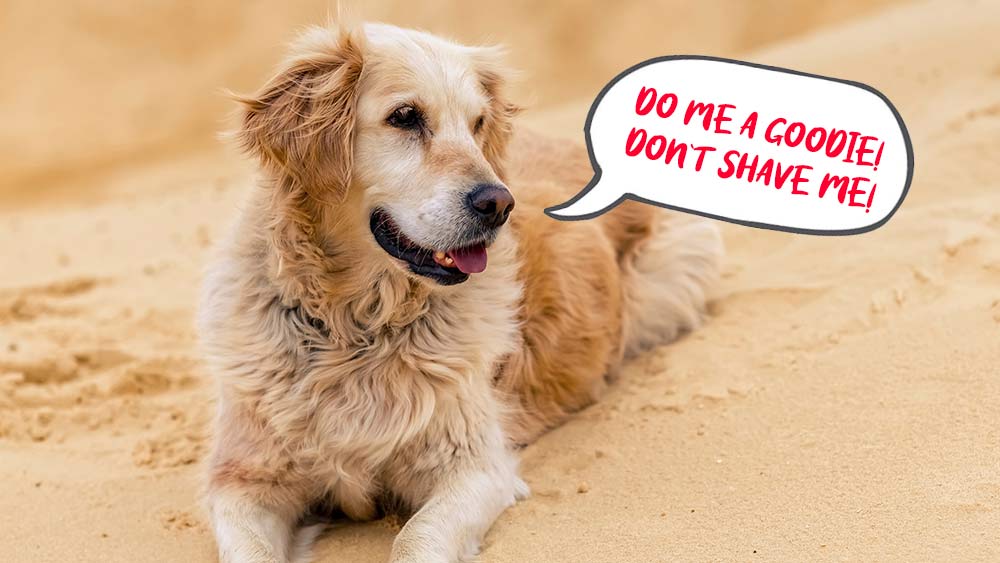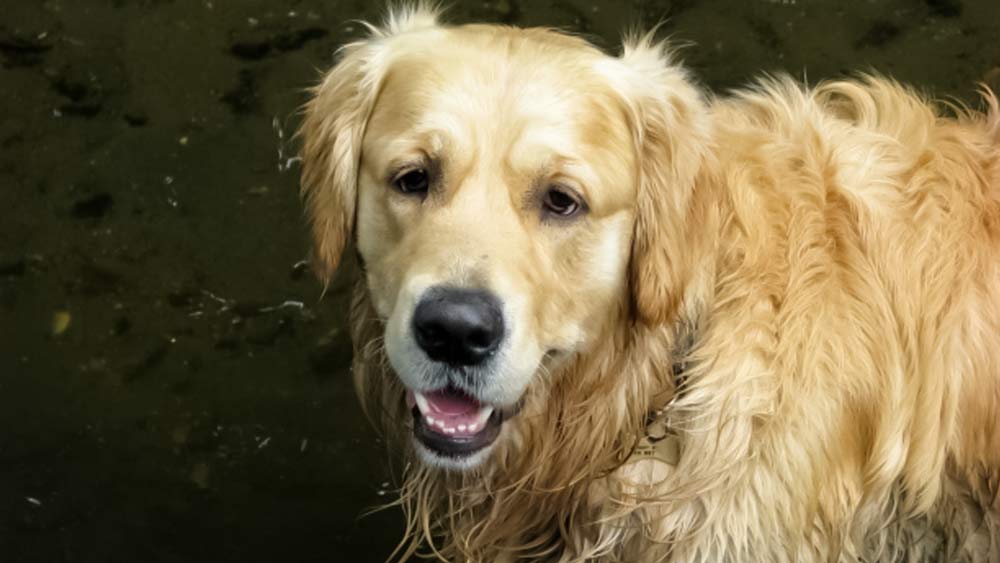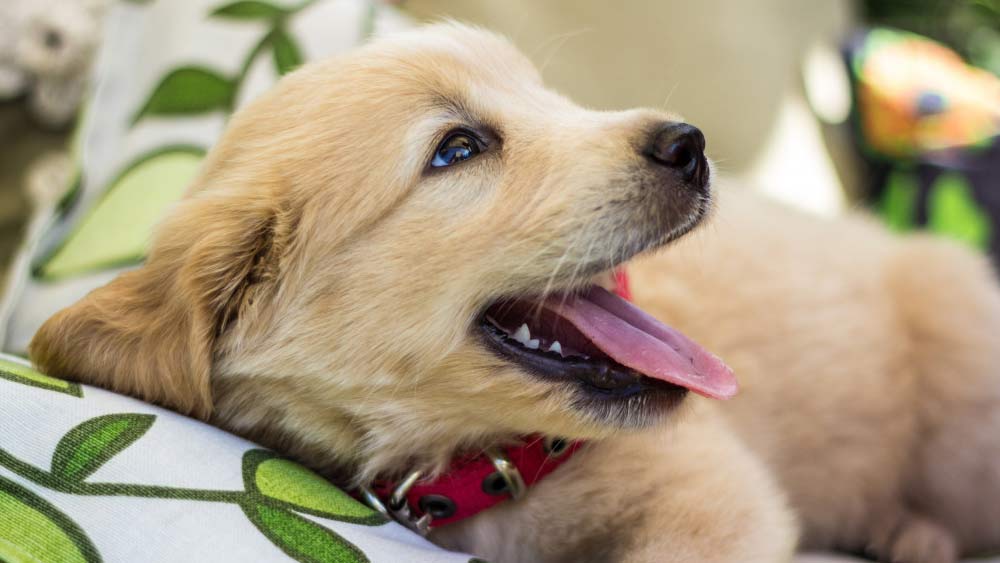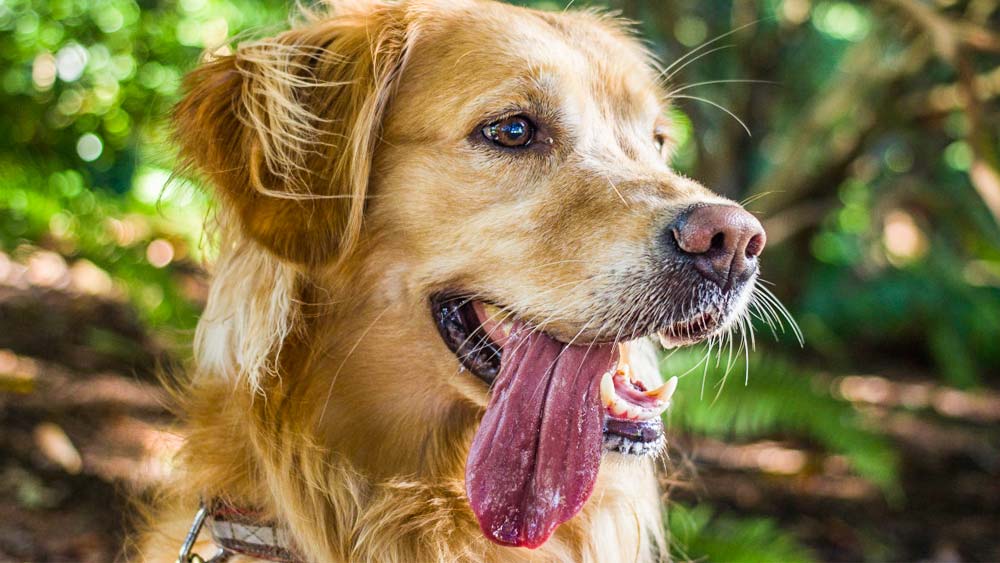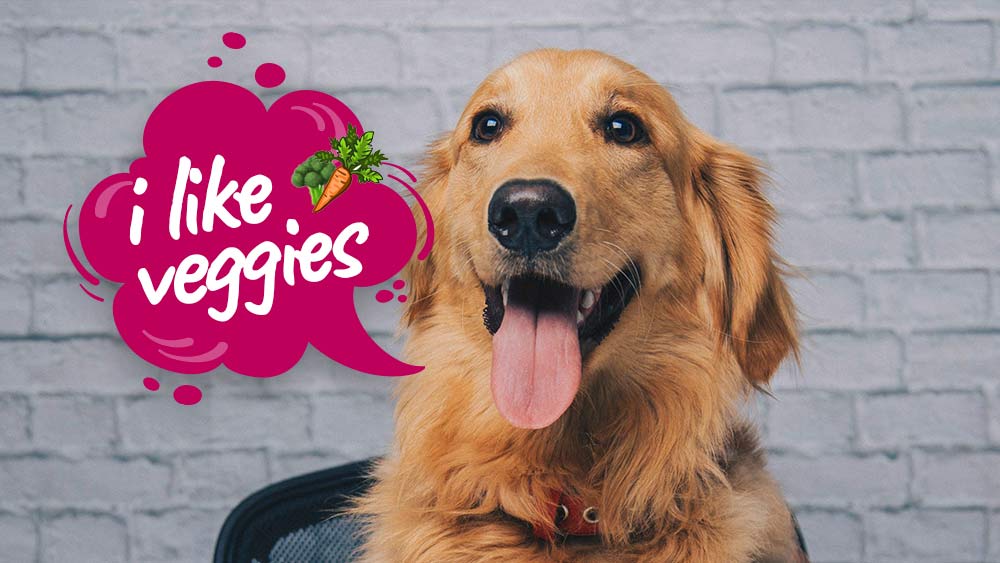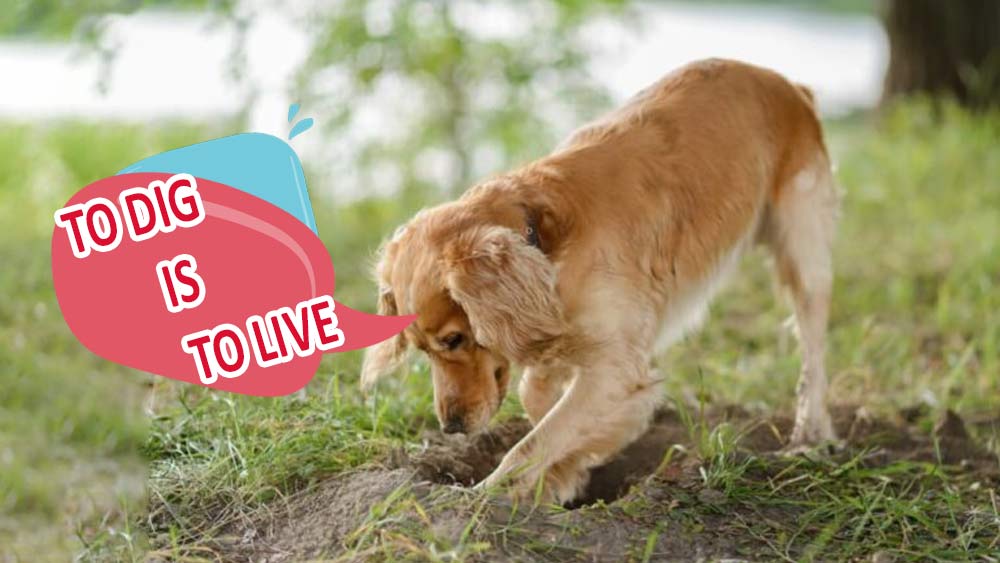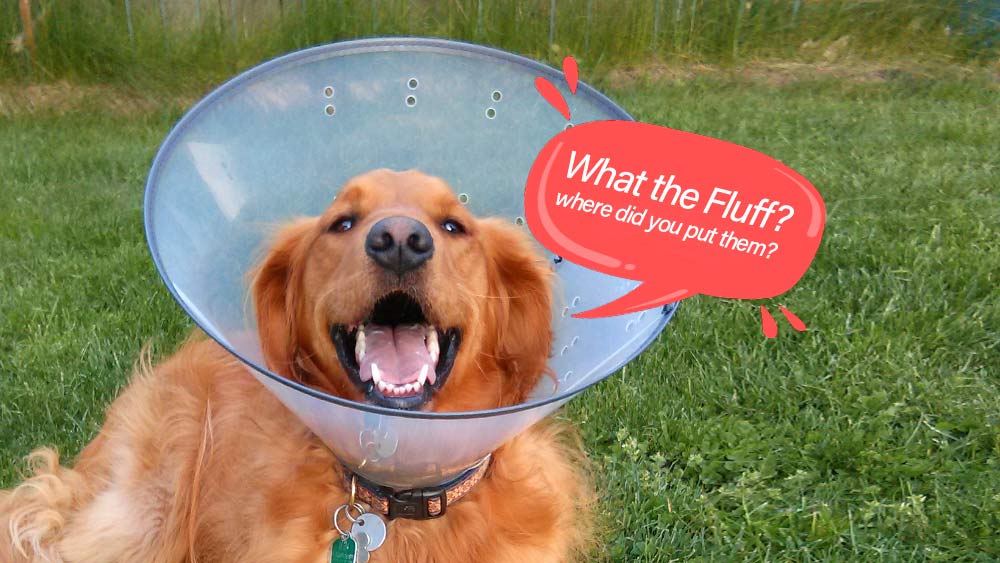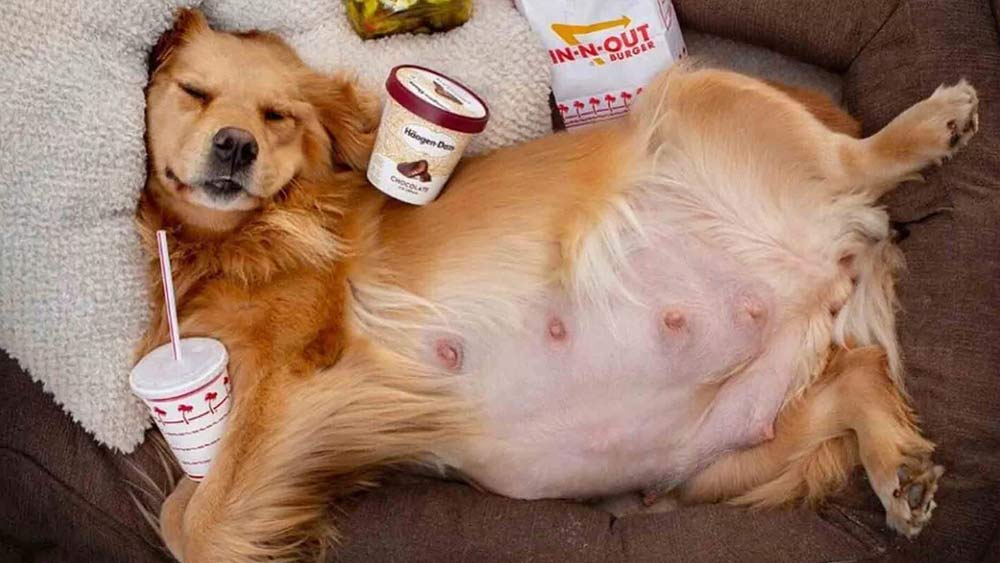Golden retriever puppies are active, amusing, and playful and for this reason, they burn many calories and require a diet rich in nutrients to grow and develop properly. The food you choose to give your puppy will impact how healthy they are as adults and can either give them a head start or endanger their health. Your best bet for avoiding issues is to find the best puppy food for golden retrievers.
You may not want to hear these things, but you must know how lousy puppy foods can be. On the other hand, feeding your growing golden retriever puppy premium food designed to meet their nutritional needs will give them a good start in life.
Although many high-quality puppy foods are available, not all are designed to satisfy your dog’s nutritional requirements. The wrong formula can harm your dog’s health and lead to cancer, heart disease, musculoskeletal issues, or nutrient deficiencies.
While having a new puppy around the house is exciting, it can also be demanding. Because there seem to be endless aisles of dog toys, dog treats, and dog foods, pet stores can be overwhelming. To ensure that your diet is balanced and specially designed for your growing puppy, start by discussing it with your veterinarian. Here are a few pointers to get you and your puppy off to a good start.
Essential tips for choosing the right food for your puppy
Pick Your Puppy Food Brand Carefully
You want puppy food produced by a pet food business that has participated in AAFCO feeding trials. This indicates that the diet’s precise formulation has been fed to dogs to ensure no nutritional deficiencies. Many pet food manufacturers use recipes to create their products, but they never feed the food to real dogs before distributing it to pet stores. The better pet food manufacturers make investments in scientific research and consult with veterinary nutritionists to produce a food that is perfectly balanced and free of any nutrient imbalances that might be important to the growth of your puppy.
Be Aware of Your dog food Calories.
Puppy food should contain more calories than adult food to make up for the energy that puppies use while growing and playing. Puppies use about half of their caloric intake for tissue growth and development. They must consume enough food to supply them with enough nutrients to support healthy growth.
Dog Size Is Important
Pick a food that has been created especially for your puppy’s size. A Great Dane puppy and a Chihuahua puppy should not be fed the same food because of the different bone growth in each breed. A specific calcium-to-phosphorus ratio is present in large-breed puppy food to ensure proper bone development and reduce the risk of developing joint diseases.
The size of the puppy food also matters.
When it comes to the size of the actual kibble, a diet created for your puppy’s size is crucial. Look for a toy or small breed puppy formula to help a tiny Yorkie puppy who may struggle with larger pieces of food. Consider the size of the food chunks if you choose a wet meal.
Check the Ingredients in the Puppy Food.
Your puppy’s development depends on the ingredients in its food (and how they are balanced). For instance, DHA is a crucial fatty acid for the nervous system of puppies. To support a growing puppy’s eye, ear, and brain development, puppy diets should contain more of this than foods intended for adult dogs. Puppies-fed diets rich in DHA have been shown to improve memory and trainability. Puppies should become more intelligent and trainable as a result.
Maintain healthy weight
Maintaining a healthy weight for the rest of your puppy’s life is essential. While overweight puppies are more likely to grow into overweight adult dogs, underweight puppies may not develop properly. Diabetes, heart disease, high blood pressure, arthritis, and heat exhaustion are just a few of the illnesses that can result from this. Your veterinarian should assess your puppy’s body condition score at each visit to ensure you are on track with nutrition.
Why do Dogs Enjoy Treats?
Eating can be a social event for dogs, so hand-feeding your puppy strengthens your relationship. Puppies frequently nag for attention and treats, so the two grow close.
The dangers of feeding homemade food to puppies.
Puppy wellness care is acceptable, but it’s easy to go overboard. As cute as a pudgy puppy might be, being overweight has serious health consequences and can even shorten the life of an adult dog. If you manage to keep your puppy slim as he grows into an adult dog, you can extend his life by two years or even more.
Puppies have unique nutritional needs. Their taste may be similar to ours, but they need much less. Small amounts of human food are acceptable for puppies to eat. But if they consume too much, it can’t replace the healthy diet they need, and it could be fatal if they overeat or the wrong food.
People Food as treats for Your Puppy
More likely, what’s healthy for you will also be healthy for your dogs. so let us look at some examples of foods that are safe to feed your golden retriever puppy.
Lean meat
Turkey, chicken, and lean beef are all fine choices in moderation. Ham should be avoided since it may be too rich for a puppy’s digestive system. Avoid giving your dog any cooked ham or poultry bones because they may splinter and cause harm.
Vegetables
Raw or cooked vegetables like broccoli, carrots, and asparagus can make delicious treats. Have guests start with the crisp vegetable tray before they pet your pet. Don’t add any extra flavorings like sauces or dips.
here is a fun video of an “adult” cream colored golden retriever eating all kinds of veggies.
Fruit
Keep in mind to remove any fruit seeds or pits that could be poisonous or clog your arteries. Oranges are a great source of vitamin C, and apples are suitable for your teeth when you chew them. Bananas, cantaloupes, and watermelons are also acceptable for dog treats. Many canines appreciate a treat of peanut butter. Because of their high caloric load, starchy foods like potatoes, rice, and bread should be eaten sparingly. Avoid serving sauces with starches, such as gravy, because they can be overly rich.
here is a video of a cute golden retriever puppy eating a slice of watermellon
Milk products
Dog milk differs from the cow’s milk that humans consume, although puppies may enjoy milk as a treat. Milk is frequently tricky for puppies to digest, and too much might result in diarrhea. Instead, consider giving them plain yogurt.
Before bringing your pet home, find out what your dog is used to eating. An abrupt food change might bring on diarrhea. The burden of a new family and home is enough. Feed your dog its regular food for the first few days to prevent upsetting the puppy’s stomach. Breeders select specific puppy foods for various factors, so that might be a suitable food to keep using.
If you want to switch diets, you can later transition your dog to a new food by mixing the old and the new in a 50-50 mix, gradually reducing the old and increasing the new diet over a period of a few weeks so your dog`s internal systems can adjust to this new diet
Pay attention to these crucial elements of puppy nutrition!
Although selecting a healthy puppy diet is crucial, feeding your puppy involves more than simply what you put in his bowl. Along with portion control, limiting the best puppy treats, and ensuring your puppy gets regular exercise, a good nutrition plan should include these elements.
Even though many puppies tend to graze naturally, it’s best to establish the habit of giving your puppy regular, portioned meals as soon as possible.
When a puppy is young, leaving food out for them to snack on all day may be effective, but as they age, this free feeding can result in significant weight gain. Offer your puppy measured portions at predetermined times of the day instead.
Your veterinarian might advise giving your puppy several small meals throughout the day while it is still a young animal.
When your puppy is getting close to adulthood, you can switch to feeding it 2-3 meals daily. Your veterinarian can calculate your puppy’s daily calorie needs so you can decide how much to provide at each meal and can assist you in choosing the best feeding schedule for your dog.
Remember to account for any snacks, leftover food from the table, or any food your puppy may be received because these are a significant source of extra calories! Treats shouldn’t account for more than 10% of your puppy’s daily caloric intake, according to veterinarian nutritionists.
The entire health of your dog depends greatly on exercise as well. Exercise is not only a great way to release all that puppy energy, but it’s also crucial for the growth and socialization of your puppy.
Obesity and behavioral issues can be significantly avoided with regular exercise and mental stimulation! However, puppies growing quickly are vulnerable to orthopedic injuries, and excessive exercise might have negative effects. According to a decent rule of thumb, puppies shouldn’t exercise for an extended time beyond what they would typically do while playing with other puppies their age. A sustained run or hours of agility training should be avoided until your puppy is fully grown, even though running around in the park is normal.
Conclusion
If you care about your puppy’s future health, you should give careful consideration to the food you feed it. Pups spend a lot of energy and need a high-calorie, high-nutrient diet to thrive. Nutritional deficiencies, cancer, heart disease, and joint problems can result from feeding your dog the wrong formula. Do Your Research Before Purchasing Dog Food You should look for a pet food company that has participated in AAFCO feeding trials and produces puppy food.
The bone growth in a Great Dane puppy is different from that of a Chihuahua puppy, so the two breeds shouldn’t be fed the same bone growth food. To add two or more years to your dog’s life span, it’s crucial that he stays at a healthy weight as he matures into an adult dog. Puppies can eat small amounts of human food without harm, but this shouldn’t be used as a replacement for their regular puppy food. Dogs can also enjoy treats like bananas, cantaloupes, and watermelons. You shouldn’t feed your puppy ham because it’s rich fat content could cause digestive issues.
Rely on starchy foods like potatoes, rice, and bread only in moderation. When a puppy is young, it may be helpful to leave food out for them to snack on all day; however, as they get older, this free feeding can lead to significant weight gain. By the time your puppy is almost fully grown, you can reduce its daily rations to two or three meals. Your puppy’s daily calorie intake shouldn’t have any more than 10% come from treats. Puppy energy needs to be expended, and exercise is essential for healthy development and positive socialization of your dog at every age.







